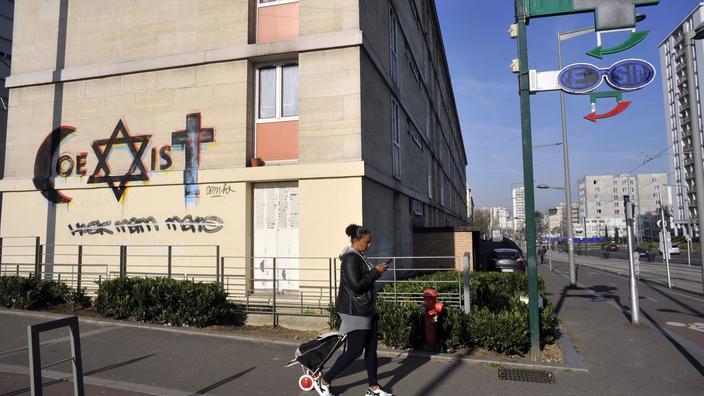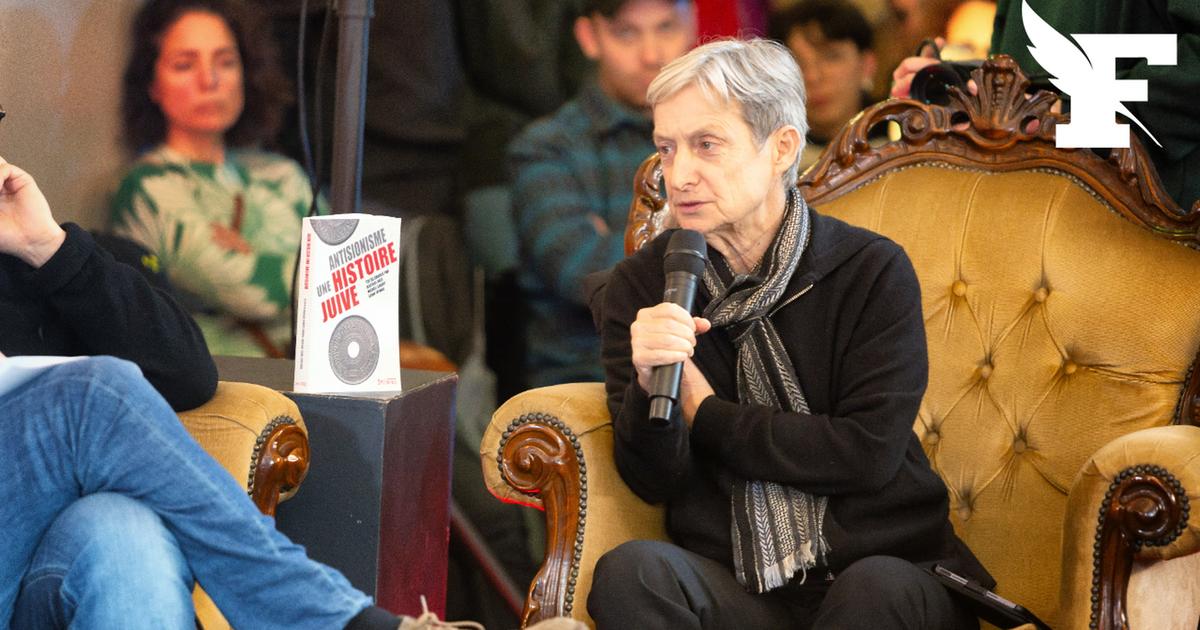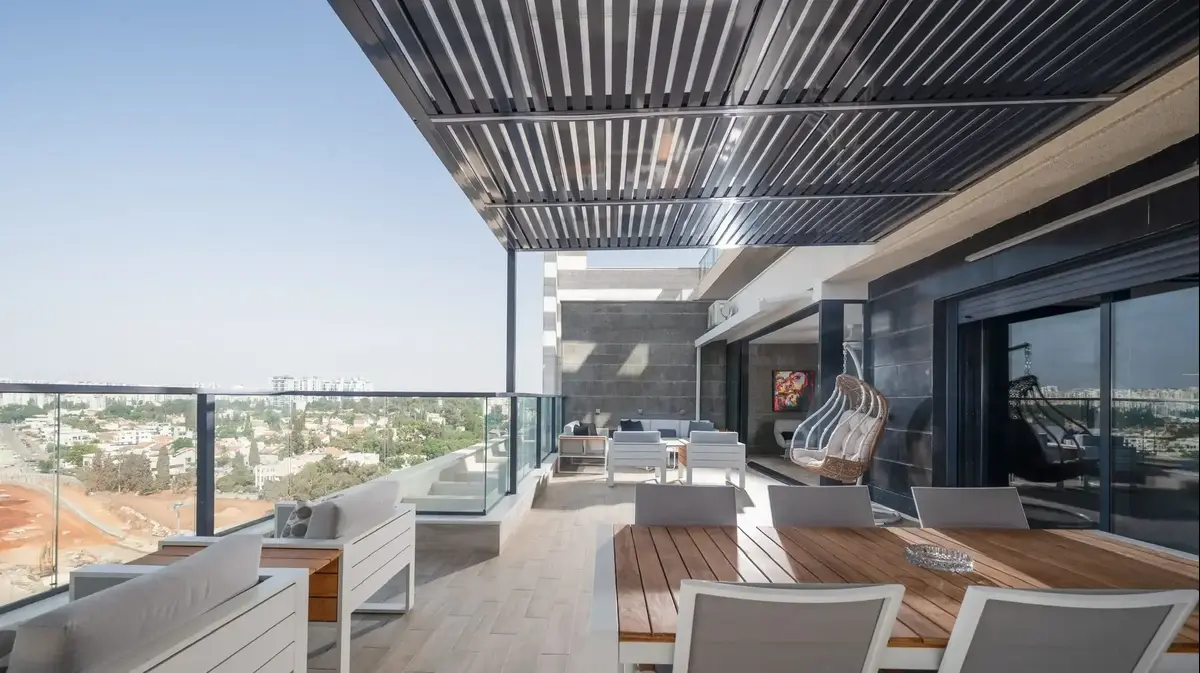Noémie Halioua is editor-in-chief and correspondent in Paris for the I24 News channel. She co-wrote
Le Nouvel Antisémitisme en France
(ed. Albin Michel, 2018), wrote
The Sarah Halimi Affair
(ed. du Cerf, 2018) and has just published
r Les uns contre les autres - Sarcelles, du vivre-ensemble to live-separated
(ed. du Cerf).
LE FIGARO. - In your book, tell you about your return, ten years later, to the city that saw you grow up: Sarcelles. You describe a city undermined by communitarianism unlike the “Sarcelloise solidarity” of your youth. A city where “there was no open conflict between the communities”. What did the Sarcelles look like before?
Noémie HALIOUA. -
As in many cities in France, the 90s already marked the beginning of the end.
To measure the extent of this change, you have to go back earlier in time, to the 1960s, when the “big complex” fell from the sky on vegetable fields to alleviate the housing crisis.
The first inhabitants are mainly workers, employees and civil servants.
80% of housing is allocated to staff from public or private companies that have participated in the financing of housing.
Mixed in there are "native" French people and young immigrants, from a small middle class and another more disadvantaged one, arriving from slums, for whom
“social housing is the Hilton”.
Pressure to integrate encourages immigrants to adopt the habits and customs of the host country, to put it simply, to speak French and eat cheese.
Jean Marty, the first parish priest of Sarcelles-Lochères, tells it like this: "On the same stairs, everyone rubs shoulders: manual workers, administrative executives, industrial executives, minor engineers, professors, technicians, people of all races and all skin colors
.
In summary, there was a social and cultural, religious and ethnic mix that mixed the de facto populations.
In these times, families from all walks of life are neighbors, have their children in the same classes, frequent the same parks.
It is already a lot.
A kind of diverse utopia, a peaceful coexistence did exist and not so badly in its beginnings, in this city defined by for its “cosmopolitanism” and its very wide variety of residence permits.
Noemie Halioua
The "before" Sarcelles was shaped by a communist, Henri Canacos, a former metalworker turned mayor, who invested phenomenal sums in the cultural sector, at a time when the communists saw culture as a tool for emancipation and of equality.
Throughout his mandate, from 1965 to 1983, Canacos favored the music conservatory, the Anna Langfus library, of the MJC from which many talents would emerge, the Forum des Cholettes which was then nicknamed "The Olympia of Teals”.
He recounts the construction of this city in a magnificent work entitled "Sarcelles or tamed concrete".
It was before official culture was judged "elitist", that Frédéric Mitterrand delivered his famous speech on "culture for everyone", before the
However, at the time when you knew Sarcelles, “the unique, the only common base for Sarcellois was not France, it was Sarcelles”. Was the myth of Sarcelles as the standard-bearer of multiculturalism only a media construction?
“Living together”, in Sarcelles as elsewhere, is a myth.
Instinctively, people from diverse cultures do not want to live together, they come together by affinity.
On the other hand, a kind of diverse utopia, a peaceful coexistence did exist and not so badly worked in its beginnings, in this city defined by for its “cosmopolitanism” and its very wide variety of residence permits.
In my day, that was still the case.
It was, say, the beginning of the end, the comet tail of this era.
I saw in particular the mutual aid that came to alleviate the socio-economic difficulties of all kinds.
Single mothers kept their children together, helped each other out with a portion of sugar for the coffee, cables to relight the car engine.
I
But this diversity was more a matter of a juxtaposition of diverse universes than of a sincere common adventure.
There was no open conflict between the communities, but there was a commonly shared inter-self.
There was no race war but racism, prejudice against other communities.
And France did not exist, our island had its borders: those of Sarcelles, which I tell in the chapter “The epicenter of the universe”.
Since then, we have switched to something harder: as a Sarcelloise told me recently: today, even if you ask for an egg, we don't open the door for you.
When was the tipping point?
How easy it would be to tell you that there is only one!
This degradation is progressive and multifactorial.
Social and ethnic ghettoization, family reunification, the Dalo law had their role to play.
And then September 11, the instrumentalization of the Israeli-Palestinian conflict, the resurgence of attacks against Christians in the East, the progression of a protesting Islam.
Basically, the tipping points in Sarcelles are the same as those in France, because Sarcelles is a metaphor for today's France on all questions of communitarianism and entryism.
Read alsoIn memory of Sarah Halimi
The march of the world upsets local demography, because of course the rich municipalities wash their hands of it: they prefer to break the law and pay heavy fines rather than build social housing and accommodate the poor or immigrants.
Over the course of decolonization and the tragedies of history, the new town became the capital of refuge for the uprooted.
One thing leading to another, Sarcelles became impoverished and this impoverishment led to a crossover between the middle classes who were leaving and the new waves of immigration arriving: in thirty years, the immigrant population doubled in Val-d'Oise - this is the strongest increase of all the departments.
These new communities come together easily, welcome newcomers and forget the rest of the world.
Boundaries stand between communities.
Georges, a native father of the town tells it like this:
“Like in the Old Testament, when Eve bit the apple and she no longer saw Adam the same way.
We look at each other, but we no longer see the same thing: a veil has fallen.”
Entryism also has very concrete consequences on the way in which conflicts are managed: I was recently talking to a police officer from Sarcelles, who explained to me that the communities settled their accounts as in their countries of origin, sometimes directly by planting themselves a knife in the chest.
Not to mention the honor killings that are settled between clans, the marriages of young teenage girls barely pubescent or the cases of rape put under the carpet so as not to "dirty" the communities... The police officers who sometimes arrive from the provinces must compose with all this.
The singularity of Sarcelles is not Islamism although it thrives there.
Noemie Halioua
Sarcelles has given way to a city made up of invisible borders governing the separate living of communities, each speaking its own language and which have become incapable.
They "live in a vacuum, in islands built according to logics of separatism and entryism", you say.
How did Islamism flourish in this city?
How did we arrive at the situation you are describing today?
The singularity of Sarcelles is not Islamism although it thrives there.
If you want to talk about the progression of Islamism, you write about Trappes, where the bearded men wear qamis and where the women are veiled from head to toe.
If you want to talk about communitarianism, you write about Sarcelles, it's a related subject, but another subject.
The singularity of this city is to have been elected capital-refuge of the uprooted.
Turks and Armenians, Kurds and Chaldeans, Tunisians and Pakistanis, West Indians and Indians, Jews themselves split between Tunisians, Algerians, Moroccans... All these communities make up Sarcelles.
Muslims are themselves attached to several communities that have little in common.
Read alsoWho was Sarah Halimi?
This does not mean that Islamism does not weave its web, in particular through the Islamic confederation Milli Gorus (CIMG), reputed to be an armed wing of Erdogan in France, which recently stood out for having refused to sign the charter of principles of the National Council of Imams presented by the French Council of Muslim Worship.
Moreover, on the subject of this association, the current mayor of Sarcelles, Patrick Haddad and the deputy of Val-d'Oise, François Pupponi, were largely torn and blamed the sale of a municipal pavilion and its land. to this "association".
You will notice that in my book, I did not enter into a personal quarrel or the settling of scores, to remain free and above all not to be instrumentalized in interpersonal conflicts.
What role did political clientelism play in this transformation of the city?
The political role is fundamental.
It facilitates, feeds, even pushes communitarianism when it suits it, in a purely cynical and electoral search for interest.
Whatever the term of office, he played the role of guide, facilitator and catalyst.
The mayors have never hidden it, accusing the State of letting them manage a mountain of problems which would “force” them to refer to associations.
In Sarcelles, everything is perfectly structured so that the demands of each community have a voice: politicians and religious go hand in hand in a sum of common interests.
Depending on their electoral weight, everyone claims their share of the cake and the politician brings it to them on a silver platter, in exchange for a reserve of votes.
that it is
deals with budgets for "cultural" associations, loans of municipal halls for festivities, etc.
You end up with roundabout names that refer to historical events from all over the world that you didn't even know existed.
Suffice to say that the day when Islamists seek a local base, Sarcelles will be an ideal target, everything is already ready.
And many Jews fled the city. Anti-Semitic attacks are commonplace, do you write…
I would also add: although minimized by the public authorities and in particular local authorities who refuse to take responsibility for this failure.
It is difficult to be a Jew in Sarcelles, once you leave the Jewish quarter transformed into a ghetto, bunkered and protected by soldiers from Operation Sentinel.
The schools and the great synagogue are overprotected by facades and surveillance cameras in normal times, and I won't tell you in times of conflict in Israel... In 2014, a pro-Palestinian demonstration turned into an anti-Jewish riot and this trauma has led families to pack their bags overnight.
Over time, the Jewish community emptied.
On a personal note, my family and all my close friends from childhood moved to Israel, so I wonder:
Will there be Jews left in Sarcelles in twenty, thirty, fifty years?
I'm not sure.
It is a banality to say it and yet imagine that for this simple observation, I received threats of incredible violence from the current president of the Jewish community of Sarcelles.
Saying that the sky is blue in summer can bring you unimaginable pressure and intimidation, as the historian Georges Bensoussan had noticed long before me.
This “community president” called me a “liar” and threatened to destroy me socially if I continued to talk about my book and talk about the demise of this community.
The people who participated in this book also find themselves harassed.
Some believe they are in Iran or Saudi Arabia, where journalists who do not stick to party propaganda are silenced.
I had to file a complaint when I had never set foot in a police station.
You see the vibe.
This book is an illustration on a local scale of the bursting of the nation into a string of protesting, demanding communities, which are heading straight for confrontation.
Noemie Halioua
How many Sarcelles are there in France? Does your book also tell the transformation of a country and the story of its fragmentation?
Yes, this book recounts the "archipelization" of the country on the scale of a territory, and concomitantly, the decline of public authorities.
It is an illustration on a local scale of the bursting of the nation into a string of protesting, demanding communities, which are heading straight for confrontation.
Because this community system ends up promoting the law of the strongest: it is the numerically largest community, the most powerful, which dictates its codes to the others.
Since Jews have always been an extremely small minority (less than 1% of the French population), this system condemns them to flight or even disappearance.
The republican system protects minorities contrary to the nonsense we hear today.
Through the example of Sarcelles, I evoke a very current problem,
namely, the dislocation of the French nation.
An eminently problematic dislocation because the nation remains an unsurpassable horizon for a democracy worthy of the name, despite the thrusts of cross-border ideology or ultra-powerful non-democratically elected supranational organizations (Europe, GAFAM, etc.).
But I don't want to fool potential future readers: this book is not a pure politico-historical treatise on Sarcelles;
at least, it is not only that.
The first-person narrative also betrays a literary, nuanced, sensitive approach.
It is also largely a question of a childhood in the district of little Jerusalem, of questioning the intertwining between belief in God and religious practice, of social and cultural emancipation.
Personally, I feel more undermined by metaphysical questions than a politician.
* Noémie Halioua,
One against the other.
Sarcelles, from living together to living apart
, Editions du Cerf, 200 p., €19.
The deer









